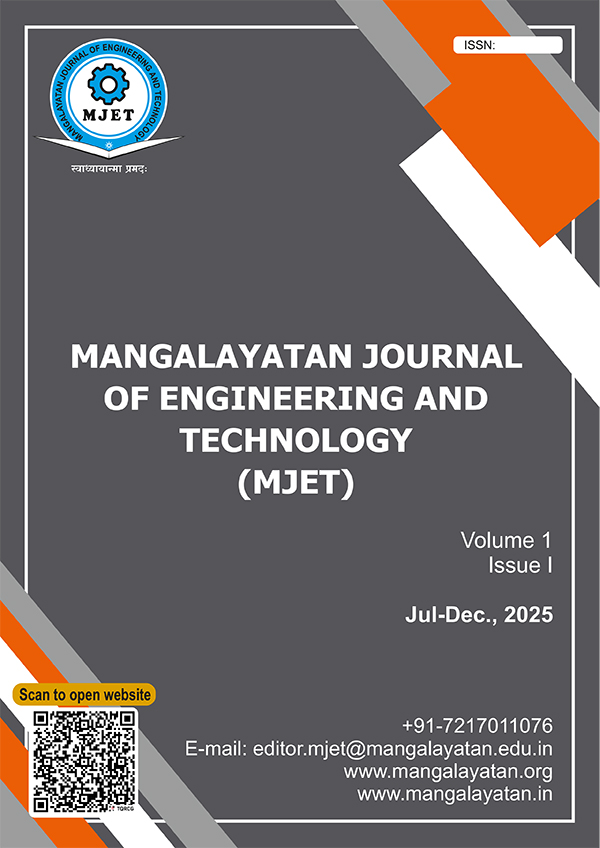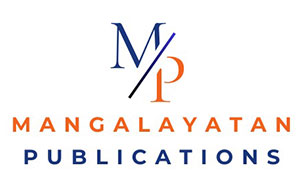Welcome
About the Journal
The Mangalayatan Journal of Engineering and Technology (MJET) is a peer-reviewed journal, launched under the aegis of Mangalayatan Publications, Aligarh. The Journal aims to create a dynamic platform where researchers, academician, and professionals from around the world can share their current research findings, innovative ideas, and engineering insights. It is a multidisciplinary, peer-reviewed, open-access, international journal.
The Journal aims at publishing original research papers/articles that contribute to the growth of knowledge in diverse areas of Engineering and Technology, such as Computer Science Engineering& Applications, Mechanical Engineering, Electrical Engineering, Electronics Engineering, Civil Engineering, Engineering Physics, Engineering Mathematics, and other advances in Engineering. The Journal intends to bridge the gap between theory and its applications in technology, facilitating scholarly debate and innovation in the Engineering and Technological domain.
The Journal publishes original research articles, review articles, short communications, and book reviews in the fields of Engineering and Technology. The Journal is double-blinded, peer-reviewed, and regularly published, with issues released biannually.

Editorial Office Address & Communication
Prof. (Dr.) Y. P. Singh
Editor in Chief
- Mangalayatan Journal of Engineering and Technology,
- E-mail: editor.mjet@mangalayatan.edu.in
- Contact Number: +91 7217011076
- Mangalayatan Publications, Mangalayatan University Campus, Extended NCR, 33rd milestone, Mathura -Aligarh Highway, Beswan, Aligarh-202146-Uttar Pradesh
